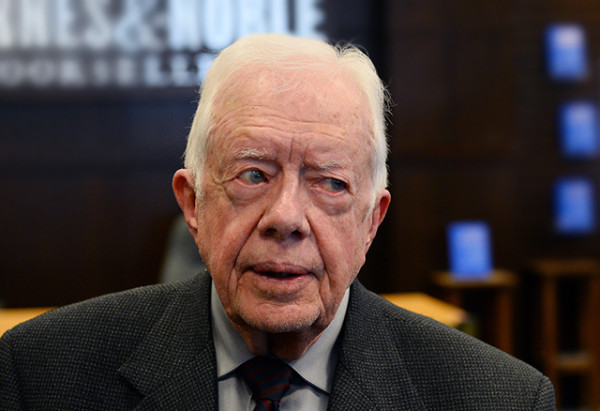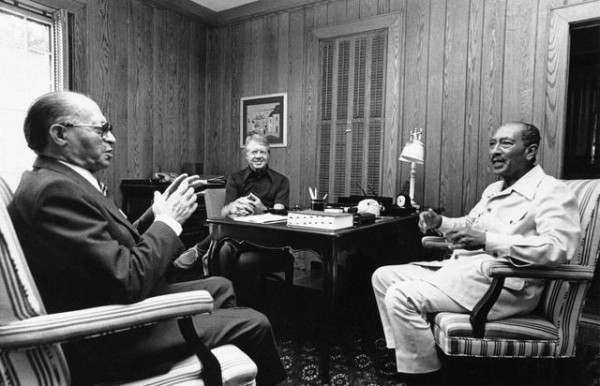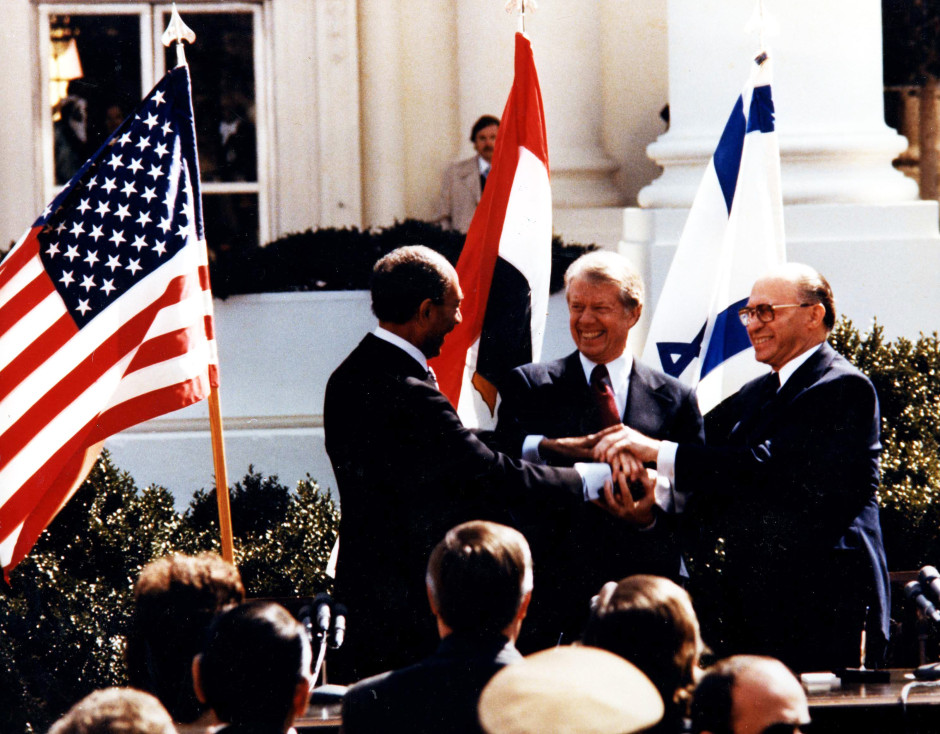According to news reports from Israel, Prime Minister Benjamin Netanyahu and President Reuven Rivlin have both turned down invitations to meet Jimmy Carter, the former president of the United States, due to their perception that he’s adopted “anti-Israel positions.” Carter is supposed to arrive in the region within the next 10 days, but it looks like he won’t be meeting either Netanyahu or Rivlin.
Which is a pity.
Netanyahu and Rivlin have a loose, self-serving definition of the term anti-Israel. To them, it appears to mean opposition to Israel’s occupation of the West Bank. And since Carter has called for Israel’s withdrawal from the West Bank within the context of a peace agreement with the Palestinians, he must be anti-Israel and therefore beyond the pale.

But in all fairness, Carter is definitely not anti-Israel. In fact, the opposite is true.
Lest it be forgotten, Carter was the chief architect and prime mover of the 1978 Camp David accords — which paved the way for Israel’s 1979 peace treaty with Egypt. The treaty, one of Israel’s greatest geo-strategic achievements, removed Egypt as a frontline Arab state facing Israel. This was a tremendous development in Israel’s quest for recognition from its Arab neighbors.
If Carter had not pushed and prodded Menachem Begin, the Israeli prime minister, and Anwar Sadat, the Egyptian president, the Camp David accords would never have seen the light of day. If these circumstances had prevailed, Israel would have a missed a golden opportunity to forge a rapprochement with its most militarily powerful enemy.
The importance of this treaty cannot and should not be underestimated, and Israel can thank Carter for it.

Carter’s detractors demonize him at every turn, but they forget that he fervently believes in the right of the Jewish people to self-determination and statehood. Carter is sensitive to Jewish history, which is one of the reasons he endorsed the creation of a Holocaust museum in Washington, D.C. But since he’s an advocate of a two-state solution, as are Israeli allies like the United States and Canada, Carter is in favor of a Palestinian state in the West Bank and the Gaza Strip.
If such a state is ever to be established, Israel will have to make painful decisions and be prepared for territorial compromise. Regrettably, the current Israeli government would rather engage in conflict management than in conflict resolution. In practice, this means that Netanyahu and his Likud Party colleagues prefer to keep much of the West Bank than to give it up to the Palestinians as part of an equitable peace agreement.
Six years ago, under intense pressure from the United States, Netanyahu came out in support of a demilitarized Palestinian state. Since then, he has done nothing to advance the idea. Indeed, he has backtracked, having expanded Jewish settlements in the West Bank and having made it abundantly clear that a Palestinian state will not emerge under his watch as prime minister.
Absent a two-state solution, Israel will probably morph into a binational state, the antithesis of Zionism. Alternatively, given demographic realities, Israel could well degenerate into an undemocratic Jewish state. Neither outcome would be in Israel’s national interests.
Carter, a discerning student of the Arab-Israeli conflict, understands what unpalatable developments may await Israel in the future should its leaders fail to settle the long-running dispute with the Palestinians. The Palestinian Authority, led by President Mahmoud Abbas, is ready to sign a historic deal. The Israeli government under Netanyahu is far from prepared to reach such an accommodation, its high-flown rhetoric notwithstanding.
Carter hit the nail on the head when, in a reference to the West Bank, he wrote, “Israel’s continued control and colonization of Palestinian land have been the primary obstacles of a comprehensive peace agreement …”
Carter represents an important and legitimate voice in the often raucous debate over Israel’s future. Some Israelis, like Netanyahu and Rivlin, haughtily dismiss his views with a wave of the hand. But they should neither ignore nor sideline Carter — a serious, well-intentioned, experienced person whose wisdom should not be denigrated.
